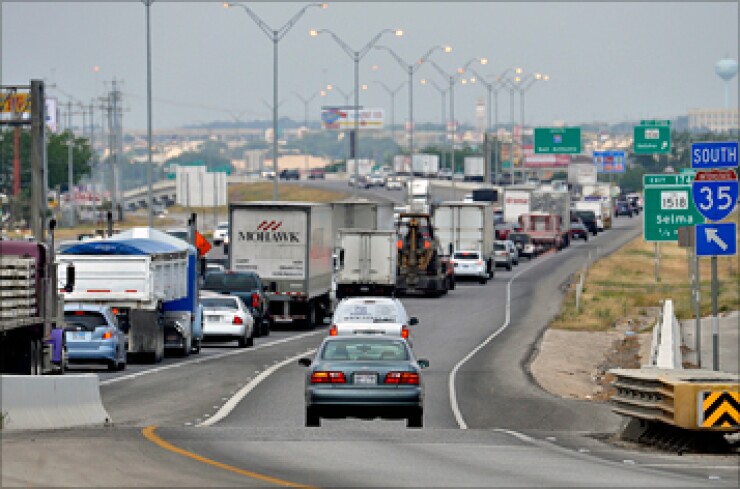
DALLAS — Texas Gov. Greg Abbott said on Wednesday that he wants state transportation officials to focus on road projects that promise swift and efficient solutions to the Lone Star State’s growing problem with traffic congestion.
Abbott, a Republican who was elected to a four-year term in November 2014, told a transportation and infrastructure symposium in Lake Jackson that he has issued a directive to the Texas Transportation Commission to identify and address the state's most congested chokepoints. Transportation planners and local communities across the state must work together to reduce congestion and get new roads built as soon as possible, he said.
“The state of Texas is spurring economic development and creating jobs by making an historic investment to build more roads and improve our infrastructure,” he told those attending the Brazoria County Transportation and Infrastructure Summit. “Together we can set a new standard for business growth and job creation by building a lot more roads.”
A report from the Texas A&M Transportation Institute issued earlier this year found that the Interstate 610 west loop in Houston is the most congested road in Texas, with highways in Austin and Dallas also getting poor marks. The state’s worsening traffic gridlock is driven largely by a rapid growth in population without a corresponding growth in roadway space, TTI said.
“But it’s not just a big city problem,” Abbott said. “Simply put, congestion is costing Texas taxpayers time and money, and the problem is only increasing.”
The Texas Legislature passed measures in the last two sessions that could provide an additional $4 billion per year for transportation projects without raising taxes, levying tolls, or issuing bonds, Abbott said.
“This funding ensures Texas Department of Transportation has the sustainable, recurring, and predictable revenue needed to plan large-scale, multiyear construction projects,” he said. “Texans must be prepared to rapidly respond with a well-planned approach. Texans’ quality of life and our state economy are counting on swift success.”
Voters will decide in November on Proposition 7, a state constitutional amendment that would direct as much as $3 billion in state sales tax revenue annually to TxDOT. The state could use the revenue only to acquire highway rights-of-way, build and maintain non-tolled roads, and make payments on general fund-backed debt that TxDOT has accumulated in the past five years.
The proposition also would send 35% of motor vehicle sales tax revenues that exceed $5 billion to the state highway fund, which is expected to give TxDOT an additional $250 million per year initially and grow from there.
Texas voters approved a constitutional amendment in November 2014 that redirects a portion of annual oil and gas production tax revenues from the state’s rainy day fund to the transportation fund. The new money is expected to total $1.7 billion in fiscal 2015, but could be less over the next few years if sales tax collections fall as crude oil prices drop.
One of the new state laws from the 2015 session requires TxDOT to determine how much it would cost the state to pay off the outstanding debt on state-subsidized toll roads and develop a plan for removing the tolls.





